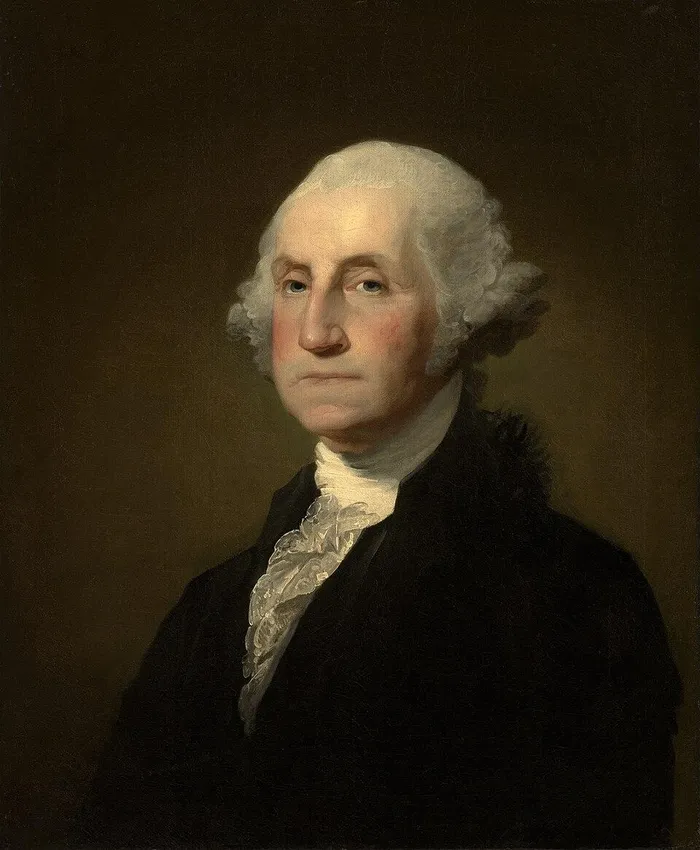Facing hard truths: South Africa's anxiety and the need for leadership
Opinion

George Washington warned: “The worst enemy to government is loyalty to party over nation.”
Image: Wikipedia
“If we offer to the people something that we do not ourselves approve, how can we afterwards defend our work? Let us raise a standard to which the wise and the honest may repair.” — George Washington
IT's time we ask ourselves hard questions. Scholars Mitroff, Emshoff, and Kilmann note that our culture trains us for compromise rather than equipping us to engage with conflict. As a result, we settle too soon — and for the wrong reasons.
Sociologist Zygmunt Bauman echoes this, citing philosopher Cornelius Castoriadis: “The problem with our civilisation is that it has stopped questioning itself. No society which forgets the art of asking questions can count on finding answers before it is too late.” A century ago, Justice Oliver Wendell Holmes warned that democracy cannot thrive without rigorous questioning.
The quality of public discourse, its depth and honesty, is vital to our survival.
Today, South Africa is engulfed in anxiety, fear, and uncertainty. Psychologist Rollo May observed that mid-20th-century society was more anxiety-ridden than any period since the Middle Ages. His words resonate here now. Our nation faces a psychological trauma—hopelessness, stress, and a crisis of individual integrity.
The Roman poet Lucretius captured this despair: “Aching hearts in every home, racked by pangs the mind cannot assuage.” People are exhausted by corruption, unemployment, poverty, crime, and the aftermath of Covid-19 and the KwaZulu-Natal floods. The latter demands long-term intervention: social workers, sustained recovery programmes, and emotional healing.
Economist Joseph Stiglitz captures our predicament: “We have shaped our society to create people who are more selfish.” Corruption is a symptom of this moral decay. The tragedy? We have the tools to solve our problems, but lack the will. We are paralysed — aware yet inactive. As the American thinker Henry David Thoreau wrote: “Social reform is not secured by noise or denunciation, but by correct thought leading to right action.”
Our leaders fail to explain the crises upending lives. Lee Atwater once criticised politicians for making promises instead of offering clarity. People endure hardship if they see purpose, but not senseless suffering. Vaclav Havel warned: “Politicians mirror society, but society also mirrors its politicians. Leaders choose whether to liberate or suppress the good in citizens.”
We need leaders of integrity. Max De Pree defines it as “a fine sense of one’s obligations”. WH Hindman calls it “doing the right thing when no one is looking”. Yet, flood victims distrust aid, fearing it will line officials’ pockets. Cadet Colonel Brett Strand’s words ring true: “The world needs more men who cannot be bought, whose handshake is an ironclad contract.” Those guilty of fraud should be treated as pariahs, not mere opportunists.
The ANC’s factionalism undermines governance. George Washington warned: “The worst enemy to government is loyalty to party over nation.” Dwight Eisenhower added: “A party without moral cause is merely a conspiracy to seize power.” If the ANC fails to root out factionalism, it risks becoming exactly that. Rutherford Hayes’ reminder is apt: “He serves his party best who serves his country best.”
Abraham Lincoln’s 1862 message to Congress is prophetic: “The dogmas of the quiet past are inadequate to the stormy present. We must think anew and act anew.” John Philpott Curran’s warning, “Eternal vigilance is the price of liberty”, must guide us. Freedom is not passive; it is won and sustained by effort.
Edward Gibbon’s *Decline and Fall of the Roman Empire* offers a chilling parallel: “In the end, the Athenians wanted security over freedom—and lost both.” Will South Africa follow? Lincoln’s admonition, “a house divided cannot stand”, applies to our fractured politics.
Citizenship demands engagement. Theodore Roosevelt called it “the quality of the individual citizen”. Judge Learned Hand reminded us: “Liberty lies in the hearts of men and women; when it dies there, no law can save it.” Active citizenship means voting for leaders of character, holding them accountable, and rejecting apathy. Aristotle noted: “We have excellence because we do the right thing.”
Martin Luther King Jr offered solace: “The confidence that God is mindful of the individual combats fear, giving us worth and belonging.” May faith and leadership rise to meet this moment.
A Chinese proverb advises: “Watch the cart ahead.” Experience comes from bad judgment; let us learn from history’s collapses. A forgotten poem’s line endures: “Bring me men to match my mountains.” Today, it must include women.
May our leaders rise to the occasion. As Luke 12 teaches: “To whom much is given, much is expected.” They must “think as men of action and act as men of thought”.
I close with a Greek salute: “May we all die young, as late in life as possible.”
* Dr Vusi Shongwe works in the Department of Sport, Arts, and Culture in KwaZulu-Natal and writes in his personal capacity.
** The views expressed here do not reflect those of the Sunday Independent, Independent Media or IOL.
